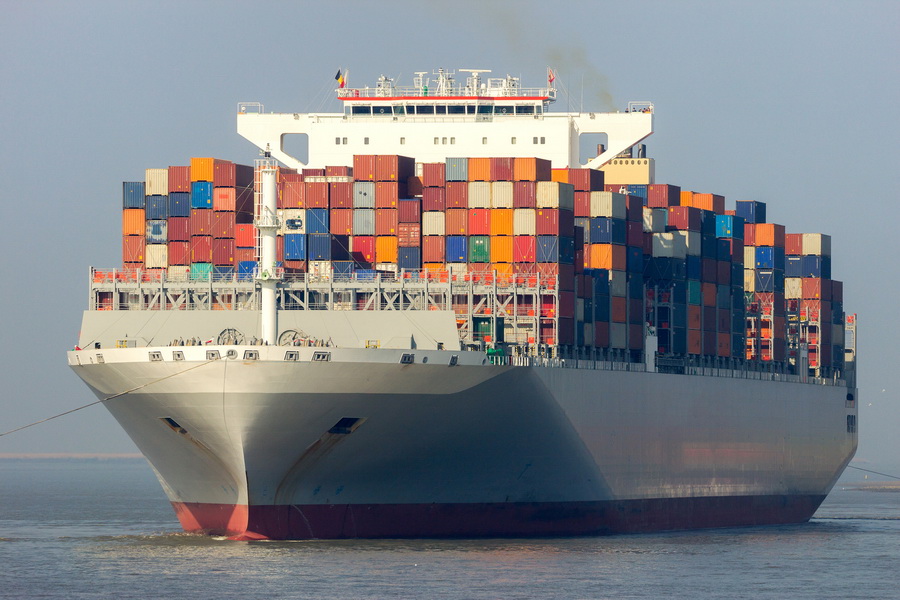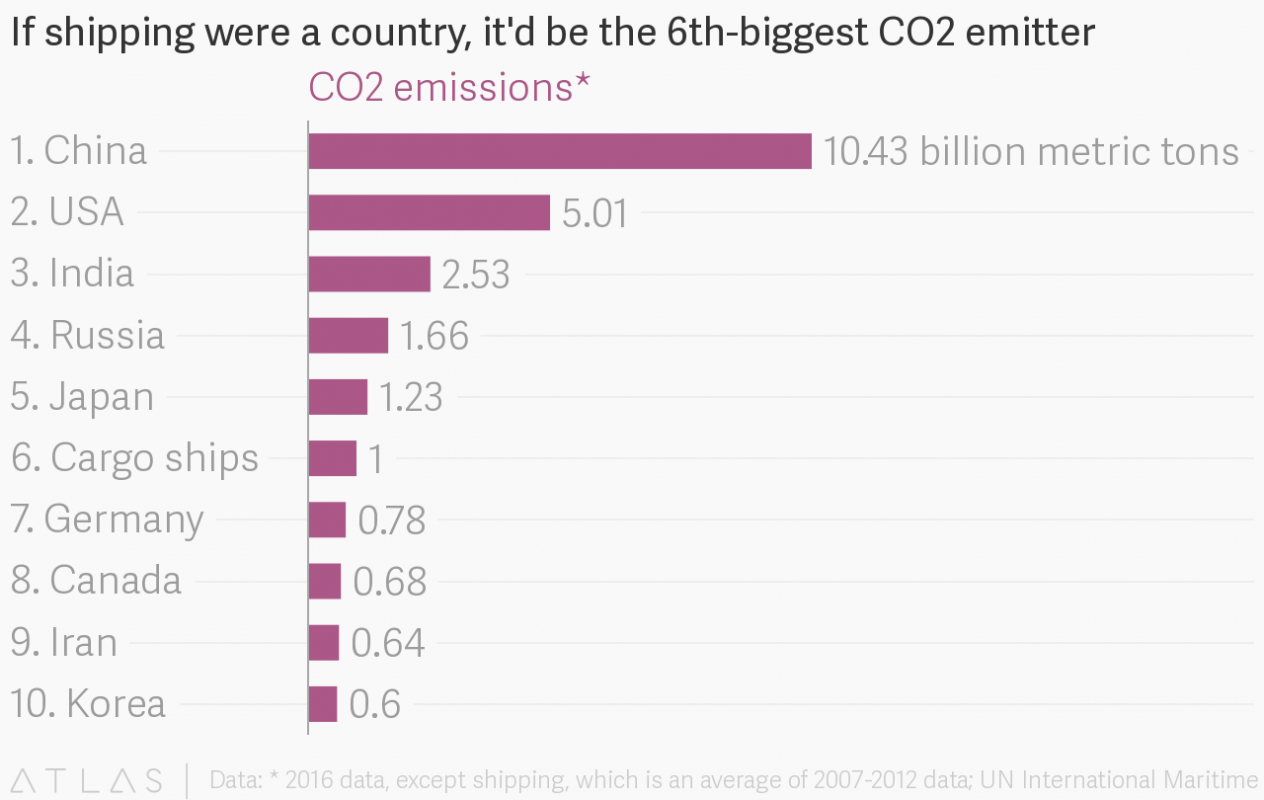 When your parents buy a car assembled in Japan or a furniture made in China, have you wondered how they got to a shop near you?
When your parents buy a car assembled in Japan or a furniture made in China, have you wondered how they got to a shop near you?
That's right - they were shipped to your country on containers aboard ships. The shipping industry is huge and is responsible for transporting 90% of all global trade, such as raw materials, fuel, electronics, clothing, cars, and food.
But this industry has also resisted all attempts so far to cut greenhouse gas emissions. That is, until recently. At a meeting in London last week, the International Maritime Organization (IMO) adopted a strategy to reduce greenhouse gases in a landmark deal. Its goal is to reduce annual greenhouse gas emissions by 50% (of its 2008 level) by 2050, as well as to pursue efforts to phase them out completely.
Why Is This Important?
 Think of those large container trucks that you see on the highways – each one carrying a single container. The largest container ship can carry 15,000 containers! At any given moment, there are 20 million containers traveling around the world on thousands of container ships.
Think of those large container trucks that you see on the highways – each one carrying a single container. The largest container ship can carry 15,000 containers! At any given moment, there are 20 million containers traveling around the world on thousands of container ships.
Most container ships run on “bunker fuel”, a heavy fuel oil that is left over after gasoline and diesel are extracted from crude oil during the refining process. It is much dirtier than other types of fuel, which means it releases high levels of carbon-di-oxide, a greenhouse gas. Shipping companies use bunker fuel because it is very cheap, allowing them to keep transportation costs low.
The IMO estimates that the shipping industry is responsible for almost 3% of global greenhouse gas emissions. In fact, if this industry were to be counted as a country, it would rank 6th in the world as the worst polluters of greenhouse gases! The emissions levels will only continue to grow as the industry itself continues to expand, if nothing is done to reduce or stop it.
A Landmark Agreement
 So far, previous climate agreements such as the Paris Accord of 2015 (see related section), have not placed any requirements on the shipping industry. Because of its international activities, the shipping industry cannot be regulated by a single country.
So far, previous climate agreements such as the Paris Accord of 2015 (see related section), have not placed any requirements on the shipping industry. Because of its international activities, the shipping industry cannot be regulated by a single country.
Therefore, the IMO is responsible for regulating the safety, security and environmental performance of international shipping. Hence, last week's agreement between representatives from 173 nations is historic. It was led by the Marshall Islands and a few other Pacific island countries that are seeing the impact of climate change as rising ocean levels threaten their survival.
In the short term, the shipping industry will have to innovate on ways to become more efficient. One simple approach is to reduce the speed at which a ship sails. Slowing ships down by 10% will cut fuel usage by one-third. However, countries that export perishable items such as fruits and vegetables are against this. Another approach is to improve a ship’s design, such that it can travel more easily through water and reduce the amount of fuel needed.
Longer-term measures could include replacing carbon-based fuels with hydrogen fuel cells or battery-powered engines or using wind-assisted technology. Even though these will take time to develop, the recent agreement is a positive first step and is a message to shipbuilders to start thinking of cleaner alternatives for fuel.
Sources: BBC, Washington Post, The Atlantic, Wired, IMO.org







